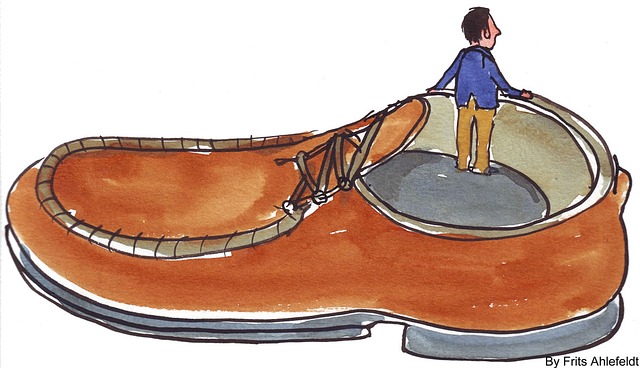2015年9月
文/Andy
Everyone can be a leader whether they have the title to go with it or not. Then there are leaders that have the title but do not lead very well at all. And then there are those who confuse being a manager with being a leader. I recognised at the age of 18 that I wanted to be a leader. Thankfully over the past 15 years I have had many opportunities to lead, with a lot of these opportunities occurring in my Church. In the business world I’ve also had many opportunities to manage, looking after teams of various sizes and across varying business areas. Often I find myself sitting down in my regular coffee shop on a Saturday afternoon and reflecting on whether I am managing or leading – checking that I am still clear on the difference between the two.

Through self-evaluation I realise that I often get the two mixed up – I’m managing when I think I’m leading, and I lead when I think I’m managing. This isn’t necessarily a bad thing though. In fact it is actually a great thing because I’ve come to learn that although they are not the same thing, they very much go hand in hand. So understanding how to do both well can yield great results?
First, let’s look at the difference between leadership and management: A manager has subordinates and people who work for him or her. A leader, on the other hand, has willing followers, sold into the vision and direction of the leader. A leader inspires and challenges; a manager gets things done by establishing processes to carry out the strategy that has been set. You manage things, but lead people.
In my current role I manage a team of 15 people across different business areas and offices, ranging from Warehouse, to Marketing and Sales. I have gleaned very valuable lessons over the past few years from my failures. That is to say that I’ve made many mistakes and have disciplined myself to soak up every ounce of wisdom from each setback.
I’ve heard people say that experience makes you wiser. The more you do something, the better you will be. Wrong. Granted, it will become easier the more times you do it, whatever ‘it’ is, but that’s because the unfamiliar becomes familiar. Your nerves and uncertainty are replaced with feelings of being comfortable and knowing what to expect. But it doesn’t make you a better worker, let alone manager or leader. Experience alone is not enough. It’s evaluated experience that counts. It’s taking the time to review and evaluate every success as well as failure so you learn as much about what works as well as what doesn’t. You then adapt and change accordingly. Being a good manager and leader is a constantly evolving process, and requires a great deal of flexibility and the willingness to change direction, sometimes even a full 180 degrees!
I do my best to work from a place of humility and openly admitting that I don’t have all the answers. I relieve myself of the pressure of having all the answers to all the problems and issues that arise within my company. If I don’t do that, then the alternative is for me to pretend to know when I really don’t, which takes us down the path of poor and maybe even disastrous decision-making, all for the sake of my pride.
As a leader I innovate, working alongside and developing my team. I invest heavily in myself so that I can invest the fruit of my own development into my team. I wish for each member of my team to reach his or her potential, running the risk of developing them ‘out’ of the company. I believe this is good leadership. You must earn the trust of the men you are trying to lead by placing their needs before your own, and make it apparent that this is the case. Often when you help others get what they want, you will end up getting what you want. And doing this enables me to inspire trust.
As manager I also need to ensure a degree of control, ensuring that trust is followed up and given opportunities to be tested. Otherwise there is the risk of being too naive and trust is abused. I try to balance the immediate maintenance of the business on a daily and weekly basis, with the longrange perspective. I keep one eye on today and one eye on the horizon.
Forgive me if I am talking as if I have attained the status of a great manager and/or leader. I am sharing my efforts, rather than my results. So how do I, and how would you, keep track of progress? If you want to know if you manage well, look at the figures. If you want to know if you’re a good leader, look at the people and ask yourself honestly – Would they follow me if they didn’t get paid for what they do?
中文翻譯版本
原文:李民輝
翻譯:小書生
領導者 vs 管理者
不管有沒有名銜,每一個人都可以當一個領袖。有些領袖身帶職銜,卻未能統領大局,也有些人混淆了管理者(Manager)和領袖(Leader)的分別。在十八歲時,我已經希望成為一個領袖。在過去十五年,我得到了很多領導的機會,而大部分的機會都是在我的教會之中,我常為這些機會而感恩;在工作上我也有很多機會去管理不同大小、不同領域的團隊。星期六下午,我習慣獨自坐在常去的那家咖啡廳,反思究竟自己是在當管理者還是領導者,並確定自己清楚兩者的區別。
在自我評估的過程中,我發現自己分不清這兩個角色──當我以為自己在領導時,其實我正在管理;常我以為自己在管理時,其實我在領導。搞亂了其實不一定是壞事,甚至有它自己的妙處。雖然兩者迥然不同,但我發現兩者同時也是相輔相成的。若果仔細思量如何可兩臻其妙,就能左右逢源。
首先,我們先看看「管理」和「領導」有什麼分別。一個管理人有自己的下屬替他工作,而一個領導人則有一班認同他的抱負和方向所感的人,心悅誠服地跟從他;一個領導人會創新,同時挑戰現有成果,而一個管理者會建立程序,確保大方針能確切實行。對於事物,我們需要管理;對於人,我們則需要去領導。
在我現時的工作崗位上,我需要管理十五個人,涉及不同的領域及範圍,由倉務、市場規劃到推銷都包括在內。在過去數年我不斷在失敗中學習,獲益良多。在無數次旳失敗之中,我不斷鞭策自己,也嘗試從每次的教訓中學到一些智慧。
我聽過有話說「智慧隨經驗增長」,做得越多,就會做得越好。錯了。同一件工作,你多做幾次後的確會變簡單了,但那不過是由陌生變得熟悉、不安的情緒變為安全的感覺,因為你以為自己知道將會發生的事。但「熟」不一定能生「巧」,更枉論領導及管論的技巧了。單憑經驗是不夠的。得來的經驗,需要經過評估,才是真正有用的。你得付出時間去評估每一次成功,總結每一次失敗,才能得知什麼可行,什麼不可行。然後你需要按情況而作出改變。成為一個好的管理者及領導者是一個持續的過程,你要不拘一格,甚至可能要完全改變原來的方向。
我儘力在工作時保持謙虛的態度,公開承認自己並不能解決所有問題。這樣我就能從解決公司內所有難題的重擔解脫出來。相反,若我要裝作有能力解決任何難題,那我就可能因為自己的驕傲而做出錯誤的決定,有時候甚至可能會有災難性的後果。
作為一個領袖,我會不斷創新,與我的團隊工作,同時建立他們。我大量投資在自己身上,這樣令我可將自己發展的成果繼而投放在我的團隊之上。我希望每一個成員都能盡其所能地發展,甚至冒著有朝一日他們會蟬過別枝的風險來助他們成長,我相信這樣我才稱得上具備良好的領導才能。若你要得團隊的信任,就得明顯地將他們的需要放在自己之先。很多時,在幫助其他人達到目的的同時,你也會得到你所要的,所以我鼓勵各方彼此信任。
作為一個管理者,我同時需要確定事情是在控制範圍之內,除了信任,還要適時跟進,給予機會、檢視成果。若非如此,就有可能過於天真,也令相互之間的信任被濫用了。我嘗試在日常的業務經營及長遠的發展目標中找一個平衡點,一邊留意今朝,一邊放眼未來。
請恕我以一個成功領袖或管理者的口吻來寫這篇文章,但我只是在跟大家分享自己奮鬥的過程而非結果。那你我又該如何衡量進展呢?如果你想知道自己管理得好不好,看看數字就可以了;但如果你想知道自己是否領導得當,不妨看看四周,然後撫心自問:假如你身邊的人不獲發工資,他們還會繼續追隨你嗎?




